- Home
- L. Ron Hubbard
Final Blackout: A Futuristic War Novel
Final Blackout: A Futuristic War Novel Read online
FINAL BLACKOUT
BY
L. RON HUBBARD
L RON HUBBARD BRIDGE PUBLICATIONS, INC. LOS ANGELES
FINAL BLACKOUT 0 1991 L. Ron Hubbard Library. All rights reserved. Printed in the United States of America. Earlier edition 0 1940 L. Ron Hubbard. No part of this book may be used or reproduced in any manner whatsoever without written permission except in the case of brief quotations embodied in critical articles or reviews. For information, address Bridge Publications, Inc., 4751 Fountain Avenue, Los Angeles, CA 90029.
FINAL BLACKOUT Dust jacket Artwork 0 1991 by L. Ron Hubbard Library
First Edition 10 9 8 7 6 5 4 3 2 1
Library of Congress Cataloging in Publication Data
Hubbard, L. Ron (Lafayette Ron), 1911 - 1986
Final blackout 1. Fiction, American. 1. Title ISBN 0-88404-651-6 (alk. paper)
The men and officers with whom I served in World War II, first phase, 1941-1945.
Introduction
Final Blackout is an extraordinary novel featuring an extraordinary hero¯"The Lieutenant." The Lieutenant is unforgettable.
Fictional heroes come and go constantly in literature. They do their brave deeds, save the world, and usually are displaced by the next hero on the bookshelves.
In real life, the history of the world shows that mere victory is not what makes the memorable leader. George Washington is not honored for winning battles¯he lost more than he won¯but for establishing an enduring free republic in a world which up to then was almost totally ruled by rigid aristocracies. Winston Churchill fought for Britain in combat as a young man., but that isn't why he's a pivotal figure in the outcome of World War II ... or what most people think was its outcome. And Mahatma Gandhi, who never fired a shot, then defeated Churchill's victorious British Empire and thus changed the course of history.
More than anything else Final Blackout offers importance. Under its fast-paced scenes of combat, passions, treachery and grim endurance in a war that never stopped, is its carefully developed, totally authentic portrait of The Lieutenant not as soldier but as strategist. Not as a merely military strategist though to the end he sticks to his guns¯but as a statesman. There's plenty of adventure in this book. But what The Lieutenant's spectacular career embodies is a down-to-basics description of why the world can be changed, why it only rarely changes for the better, and what that can mean for you and me. The book is populated by characters who would have been historical figures in what we call the real world. But as depicted in Final Blackout, their struggles for power hit sharply home to those of us who usually just have to put up with whatever history is doing to us whenever it wants to.
That's why this book and its hero have never been obscured since its first publication in a magazine, why many thousands have been reading various small editions of it over the years, why it's famous among those readers, and why this new large audience edition was created in response to added thousands who had heard of it and wanted it. Like The Lieutenant, it's an "unkillable: FINAL BLACKOUT"
Its author is an extraordinary person. L. Ron Hubbard (1911-1986) wrote it during that strange, brief era when the then Prime Minister of England was still issuing assurances of "peace in our time" and Hitler and Stalin, surely the two most numerically successful killers in history, were temporarily dividing up Europe preparatory to failing on each other. Final Blackout reached its first publication, as a three-part serial in a magazine called Astounding Science Fiction. By then, its author was within months of going off to fight in what some call World War II, what others see as the inevitable continuation of World War I, and which some can reasonably claim has never really come to a conclusion.
Astounding was the leading science fiction magazine of its day, propelled into prominence among those readers by a remarkable gathering of fresh new creative talents. L. Ron Hubbard was among the earliest of those, and. in their first rank. Unlike his contemporaries¯who would eventually include Robert A. Heinlein, Isaac Asimov, A. E. van Vogt, and many other authors who are still legendary names in that field and beyond it¯Hubbard already had a powerful reputation in scores of popular fiction genres.
Years before his appearances in science fiction, he had begun as an adventure-story writer, and had then branched out to publish millions of words across almost the entire spectrum of newsstand fiction in its heyday. He was specifically brought in to lend the weight of his byline to the struggling Astounding, by its new publishers. Sales figures had convinced them L. Ron Hubbard's name on a magazine cover attracted thousands of added readers.
He quickly proved he could successfully transfer that magic to science fiction, and to fantasy in the sister publication Unknown. For his speed and productivity, and most important for his ability to deliver story after story that brought readers flocking, he almost overnight became a legend among legends. Some of his fellow authors even wrote stories in which he figured as a leading character, under thin disguises. All of them speak of him as a commanding figure, magnetic and full of gusto, standing at center-stage wherever these writers gathered in what has become known as the "Golden Age" of science fiction. He was a proven veteran of what was called "fictioneering," while most of them were yet novices ... and he was still in his twenties.
He was 28 when he wrote Final Blackout. He had already been the author of scores of impressive shorter pieces in the field, making himself swiftly at home in it. He had often demonstrated the ability to pioneer fresh approaches to this literature. But even for him, and even for Astounding, his first novel in that medium was a stunner.
A Preface he wrote for a postwar small-press book edition is reprinted here following this Introduction. It conveys the sense of the immediate reaction among science fiction readers and then the spreading, shockwaves of response from well beyond the boundaries of that readership.
With typical ironic humor, Hubbard "apologizes" for his naiveté in world politics and his "youthful ignorance" of the high ideals that actually govern the leaders of society. As a satirical commentary, that Preface all by itself would make this book well worth attention. Almost uniquely among his mid-century writings, it conveys the tone of his ultimate science fiction magnum opus, the ten volume Mission Earth novel of the 1980s. In its own way, it's rife with uncomfortably prophetic overtones as Final Blackout is in its way. The "young," "naive" L. Ron Hubbard had a disturbingly apt way of cutting through the pretensions of those who claimed to know best.
The novel by the man who was readying himself for a major war was provocative reading, infuriating to some. So is the Preface produced six years later by the man fresh from that war ... or from a major episode in that continuing war ... and no less clear-eyed about what the future held.
It could easily be argued that Final Blackout did not belong in the pages of a "mere' science fiction magazine. Part of the initial impact on Astounding readers must have arisen from its expertise in military tactics, its confident grasp of strategy and, beyond that, of the chicaneries behind making war in search of political power.
Other writers in the field could write convincingly of "future war"; Hubbard's novel, however, had the ring of extra truth in countless details that none of his contemporaries could display. What's more, it was written from a level of political sophistication that was not hinted at again in speculative literature until George Orwell's postwar Nineteen Eighty-Four ... a work which, of course, was too serious to first appear as a "mere" magazine serial. (Frankly, Hubbard's offering of an optimistic solution seems preferable to Orwell's cumulatively hopeless list of reasons why no solution is really possible.)
The answer to how the "young" Hubbard was able to bring this off is that he was uncommonly
sophisticated and sharply educated in the best senses of those terms. Even when he began writing his earliest adventure stories, those were not based on armchair research but on personal experience in the wilder corners of the world. That experience in turn had been directed by his lifelong enthusiasm for learning new things and meeting new people, and trying out their ways himself.
Lafayette Ronald Hubbard was born in Nebraska but spent his earliest years in Montana, which even in the 1980s is still a place happily removed from many aspects of urban culture. In 1911, it was frontier in all but name.
He was raised at first by his grandparents, his father being a U.S. Naval officer on duty, and it's said he could ride before he could walk. Early in the second decade of his life he was both an Eagle Scout and a blood-brother to the Blackfeet Indian Nation. His first hard-cover novel, Buckskin Brigades, 1937, would graphically depict the ruinous impact of early fur-trading incursions on the Blackfeet. (On its recent republication in the Bridge edition, the Blackfeet Tribal Council addressed a letter of gratitude to his spirit.) (As the youngest Eagle Scout in the nation, Hubbard was introduced at the White House and made friends with the son of President Calvin Coolidge.)
Shortly thereafter, under the direction of his father and his father's connections, Hubbard in his teens began traveling beyond the borders of the U.S., studying formally and informally with a variety of experts in human psychology, engineering and the sciences, while getting ample opportunity to observe how the world works in places as diverse as China and the Caribbean.
In addition to then going on to sail expeditions into places in both hemispheres that were then considered exotic-and some of which still are-he became a member of The Explorers Club. On several occasions he carried on expeditions under their flag, becoming an expert on Alaskan waters and charting them. There are some indications that his private and quasi-private small-vessel activities in that area extended along the Aleutian Islands and southwestward, just as there are strong indications that he was being groomed and was grooming himself for something special in the way of Naval service. So there is good reason to believe in Hubbard's practical understanding of human nature, military lore, and political history. There is equally good justification for believing that the geopolitical concerns Final Blackout reflects were on his mind for practical reasons that went far beyond the needs of earning a living as a writer.
Certainly, when he formally entered the U.S. Navy in mid-1941, prior to Pearl Harbor, he did so under the auspices of a carefully worded April 8, 1941, letter to President Franklin D. Roosevelt from Congressman Warren D.
Magnusson, head of the Naval Affairs Committee in the House of Representatives.
Hubbard was at sea enroute to duties in the Orient when the Japanese launched the war that many in and out of the U.S. military had been quietly expecting for some time. His actual military career is only now being reconstructed from documents obtained under the Freedom of Information Act, and from the testimony of former crew members on various vessels he commanded. (He appears to have known very well how to lead men, inspiring uncommon devotion and lifelong loyalty.)
He was also the Senior Naval Officer Present in Australia, gathering and directing supplies to General MacArthur's defense of the Philippines, before transferring to the Atlantic Fleet. His friend, Naval Academy graduate Robert A. Heinlein, has declared that Hubbard convalesced at his home from serious injuries that do not appear on the record released by the U.S. Navy after the war.
And if the Preface is pointedly ironic, that may well be related to the fact that Hubbard immediately after the war severed his connections to the Navy and soon thereafter began a new career-signaled by the release of Dianetics, The Modern Science of Mental Health-whose stated goal is the achievement of a sane planet. The dry wit visible in the Final Blackout Preface may not be all there is to this. Underneath, there may be a far deeper bite occasioned by experience in which Hubbard discovered that what he had written about as speculative fiction was very much like something all too true.
The haunting quality of Final Blackout can't now be separated from suppositions of that kind. When it was written, for instance, passages in which US. Marines are called in to suppress heroes were unheard-of in popular fiction. When they appeared in that marketplace, combat Marines were always the ultimate symbol of virtuous strength, fighting only on the side of pure right. Hubbard as a deft technician of writing was well aware of the value of "going too far" just far enough to titillate science fiction readers. He may have been doing no more than that. On the other hand, Hubbard may already have had reason to understand-as more of us do today-that the goodness and bravery of individuals can sometimes be put to dubious uses in high-level power-games conducted by world leaders.
In the history of the world, there have been persons in leadership positions who have not thought things through as well as they might have.
Nor have they always been able to direct matters even skillfully enough to achieve their short-sighted objectives. One of the traditional places where the price for that is paid is in the trenches where the common soldier has to crawl in simple self-preservation. Far less often is the price paid in the distant citadels of power, and even then it is normally paid in bloodless coin, limousines taking the henchmen away to minimum-security detentions or to exile in luxury.
Final Blackout may be taken as an allegory-a speculative work of science fiction that teases, the mind by presenting a world that, oh, could be, oh, yes, sounds plausible, but, well, never actually happened as predicted.
But over forty-nine years, Final Blackout has never ended, and the future runs infinitely long from this moment on.
-Algis Budrys
The son of a career soldier/diplomat, Algis Budrys was born in Europe in 1931 and has been a highly regarded science fiction novelist and editor since the early 1950s. He currently acts as the coordinator in L. Ron Hubbard's Writers of The Future Contest and its associated programs for nurturing new talent. He has taught seminars at Michigan State University, Brigham Young, Pepperdine University, and Harvard. He is equally well known as an award-winning historian and critic of modern speculative fiction. For the Chicago Sun-Times Sunday book review section, he has long written a column on popular literature in general.
-The Publisher
Preface
When FINAL BLACKOUT was written there was still a Maginot Line, Dunkirk was just another French coastal town and the Battle of Britain, the Bulge, Saipan, Iwo, V2s and Nagasaki were things unknown and far ahead in history. While it concerns these things, its action will not take place for many years yet to come and it is, therefore, still a story of the future though some of the "future" it embraced (about one-fifth) has already transpired.
When published in magazine form before the war it created a little skirmish of its own and, I am told, as time has gone by and some of it has unreeled, interest in it has if anything increased. So far its career has been most adventurous as a story. The "battle of FINAL BLACKOUT" has included loud wails from the Communists-who said it was profascist (while at least one fascist has held it to be pro-Communist). Its premises have been called wild and unfounded on the one hand while poems (some of them very good) have been written about or dedicated to the Lieutenant. Meetings have been held to nominate to greatness while others have been called to hang the author in effigy (and it is a matter of record that the last at least was successfully accomplished).
The British would not hear of its being published there at the time it appeared in America, though Boston, I am told, remained neutral-for there is nothing but innocent slaughter in it and no sign of rape.
There are those who insist that it is all very bad and those who claim for it the status of immortality. And while it probably is not the worst tale ever written, I cannot bring myself to believe that FINAL BLACKOUT, as so many polls and such insist, is one of the ten greatest stories in its field ever written.
Back in those mild days when Pearl Harbor was a place you toured while va
cationing at Waikiki and when every drawing room had its business man who wondered disinterestedly whether or not it's possible to do business with Hitler, the anti-FINAL BLACKOUTISTS (many of whom, I fear, were Communists, whatever those are) were particularly irked by some of the premises of the tale.
. Russia was, obviously, a peace-loving nation with no more thought than America of entering the war. England was a fine, going concern without a thought, beyond a contemptuous aside, for the Socialist who, of course, could never come to power. One must understand this to see why he slashed about and wounded people.
True enough, some of its premises were far off the mark. It supposed, for instance, that the politicians of the great countries, particularly the United States, would push rather than hinder the entrance of the whole world into the war. In fact, it supposed, for its author was very young, that politicians were entirely incompetent and would not prevent for one instant the bloodiest conflict the country had ever known.
Further, for the author was no military critic, it supposed that the general staffs of most great nations were composed of stupid bunglers who would be looking at their mirrors when they should be looking to their posts and that the general worldwide strategy of war would go off in a manner utterly unadroit to the sacrifice of quite a few lives. It surmised that if general staff; went right on bungling along, nations would cease to exist, and it further-and more to the point-advanced the thought that the junior officer, the noncom and, primarily the enlisted man would have to prosecute the war. These, it believed, would finally be boiled down, by staff stupidity, to a handful of unkillables who would thereafter shift for themselves.
FINAL BLACKOUT dealt rather summarily and very harshly, for the author was inexperienced in international affairs-that the anarchy of nations was an unhealthy arrangement maintained by the greed of a few for the privileges of a few and that the "common people" (which is to say those uncommon people who wish only to be let go about their affairs of getting enough to eat and begetting their next generation) would be knocked flat, silly and completely out of existence by these brand-new "defensive" weapons which would, of course, be turned only against soldiers. Bombs, atomics, germs and, in short, science, it maintained, were being used unhealthily and that, soon enough, a person here and there who was no party to the front line sortie was liable to get injured or dusty; it also spoke of populations being affected boomerang fashion by weapons devised for their own governments to use.

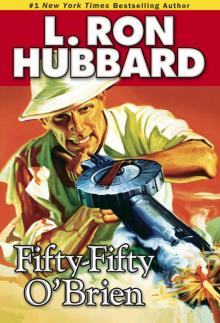 Fifty-Fifty O'Brien
Fifty-Fifty O'Brien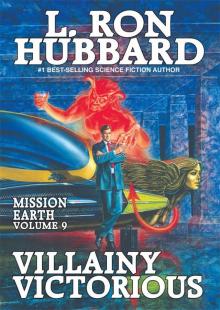 Villainy Victorious
Villainy Victorious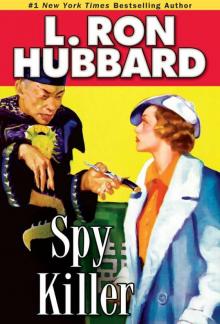 Spy Killer
Spy Killer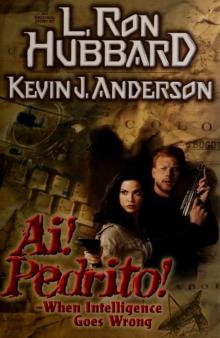 Ai! Pedrito!: When Intelligence Goes Wrong
Ai! Pedrito!: When Intelligence Goes Wrong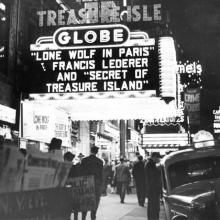 The Dangerous Dimension
The Dangerous Dimension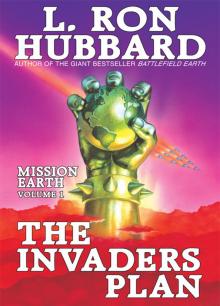 Mission Earth Volume 1: The Invaders Plan
Mission Earth Volume 1: The Invaders Plan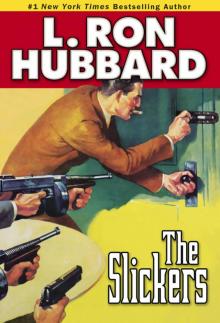 The Slickers
The Slickers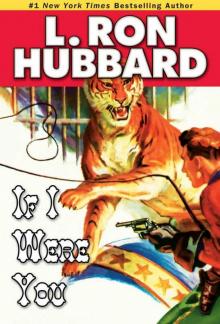 If I Were You
If I Were You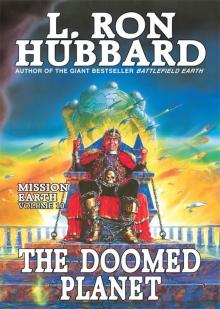 The Doomed Planet
The Doomed Planet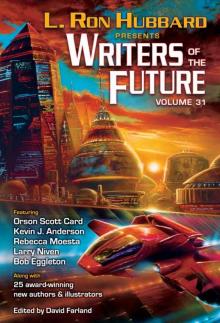 Writers of the Future Volume 31
Writers of the Future Volume 31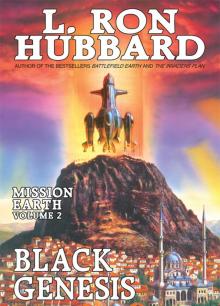 Mission Earth Volume 2: Black Genesis
Mission Earth Volume 2: Black Genesis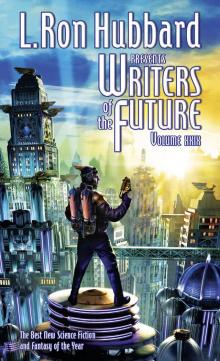 Writers of the Future: 29
Writers of the Future: 29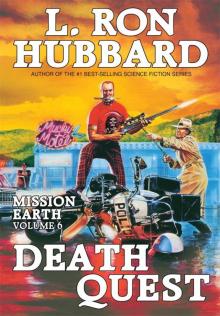 Death Quest
Death Quest The Enemy Within
The Enemy Within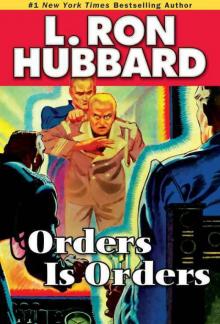 Orders Is Orders
Orders Is Orders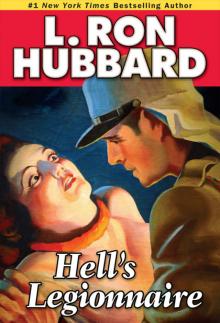 Hell's Legionnaire
Hell's Legionnaire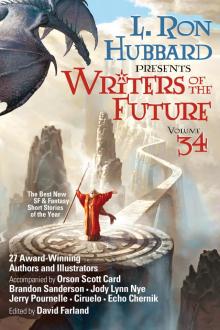 L. Ron Hubbard Presents Writers of the Future 34
L. Ron Hubbard Presents Writers of the Future 34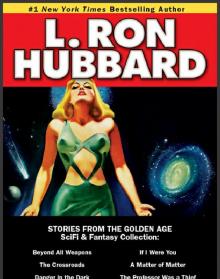 The Scifi & Fantasy Collection
The Scifi & Fantasy Collection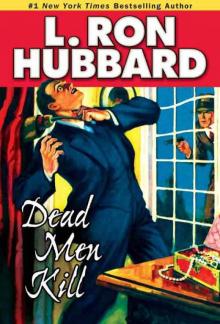 Dead Men Kill
Dead Men Kill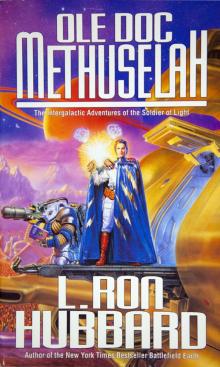 Ole Doc Methuselah: The Intergalactic Adventures of the Soldier of Light
Ole Doc Methuselah: The Intergalactic Adventures of the Soldier of Light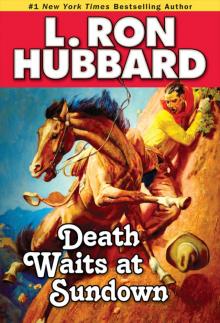 Shadows From Boot Hill
Shadows From Boot Hill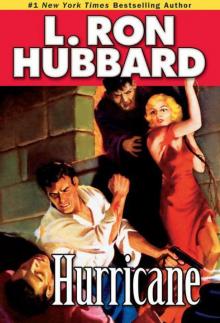 Hurricane
Hurricane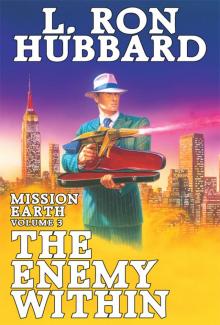 Mission Earth Volume 3: The Enemy Within
Mission Earth Volume 3: The Enemy Within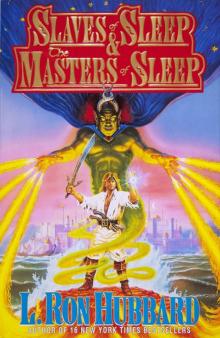 Slaves of Sleep & the Masters of Sleep
Slaves of Sleep & the Masters of Sleep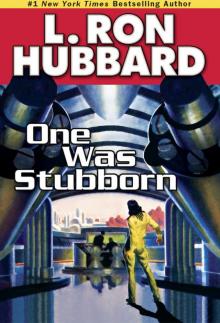 One Was Stubborn
One Was Stubborn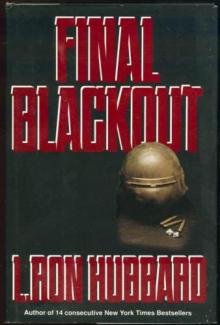 Final Blackout: A Futuristic War Novel
Final Blackout: A Futuristic War Novel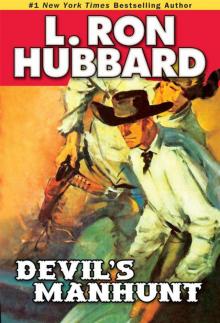 Devil's Manhunt
Devil's Manhunt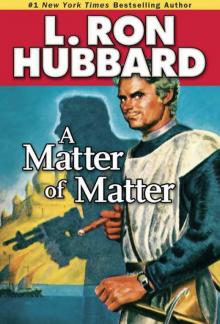 A Matter of Matter
A Matter of Matter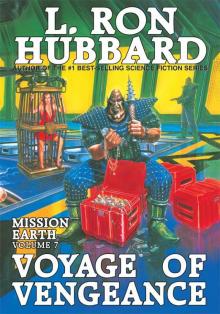 Voyage of Vengeance
Voyage of Vengeance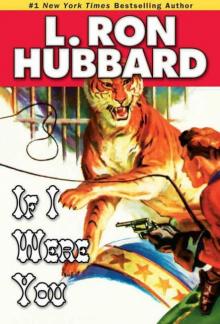 If I Were You (Science Fiction & Fantasy Short Stories Collection)
If I Were You (Science Fiction & Fantasy Short Stories Collection)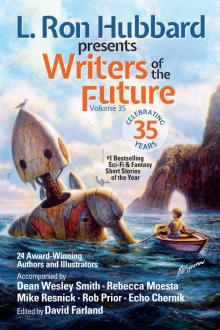 L. Ron Hubbard Presents Writers of the Future Volume 35
L. Ron Hubbard Presents Writers of the Future Volume 35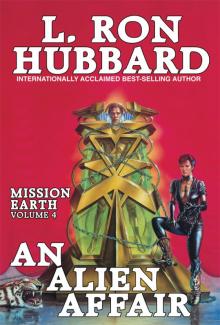 Mission Earth Volume 4: An Alien Affair
Mission Earth Volume 4: An Alien Affair Black Genesis
Black Genesis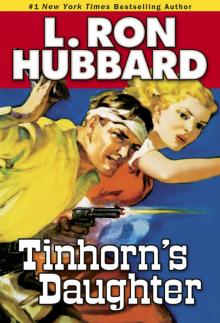 Tinhorn's Daughter
Tinhorn's Daughter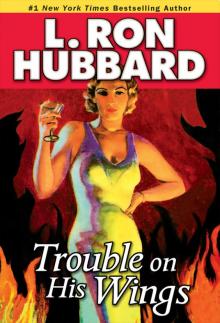 Trouble on His Wings
Trouble on His Wings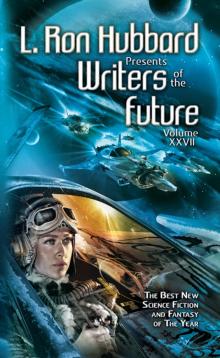 Writers of the Future Volume 27: The Best New Science Fiction and Fantasy of the Year
Writers of the Future Volume 27: The Best New Science Fiction and Fantasy of the Year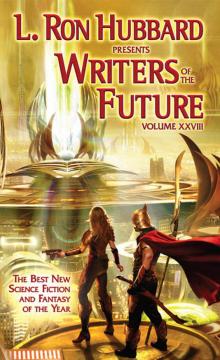 Writers of the Future Volume 28: The Best New Science Fiction and Fantasy of the Year
Writers of the Future Volume 28: The Best New Science Fiction and Fantasy of the Year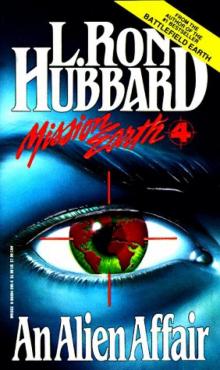 An Alien Affair
An Alien Affair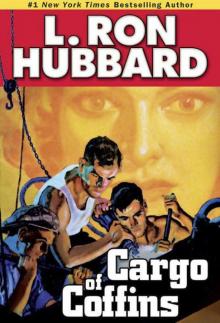 Cargo of Coffins
Cargo of Coffins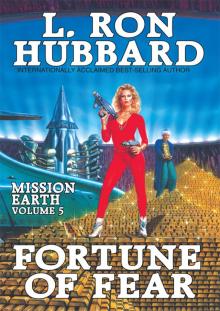 Mission Earth Volume 5: Fortune of Fear
Mission Earth Volume 5: Fortune of Fear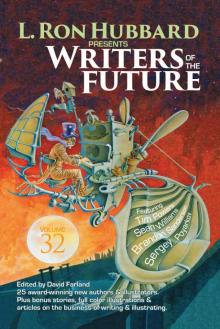 Writers of the Future 32 Science Fiction & Fantasy Anthology
Writers of the Future 32 Science Fiction & Fantasy Anthology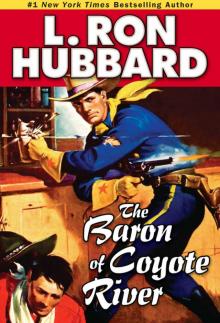 The Baron of Coyote River
The Baron of Coyote River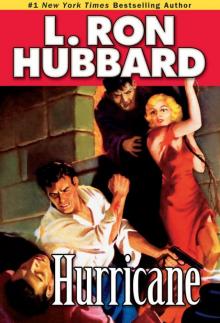 Hurricane (Stories From the Golden Age)
Hurricane (Stories From the Golden Age)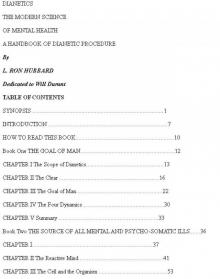 Dianetics: The Modern Science of Mental Health
Dianetics: The Modern Science of Mental Health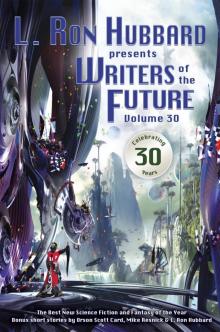 Writers of the Future, Volume 30
Writers of the Future, Volume 30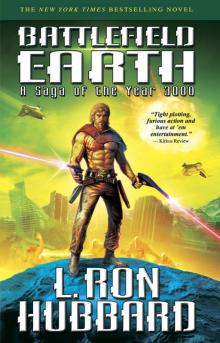 Battlefield Earth: A Saga of the Year 3000
Battlefield Earth: A Saga of the Year 3000 Fear
Fear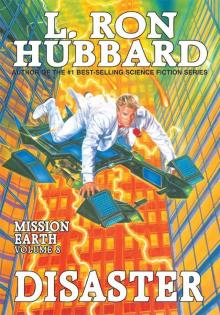 Disaster
Disaster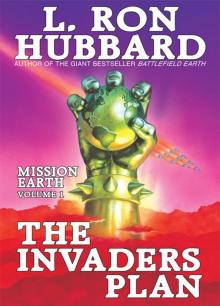 Invaders Plan, The: Mission Earth Volume 1
Invaders Plan, The: Mission Earth Volume 1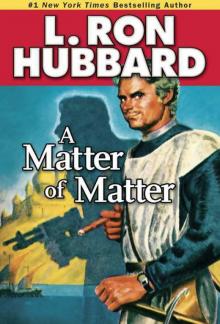 A Matter of Matter (Stories from the Golden Age)
A Matter of Matter (Stories from the Golden Age)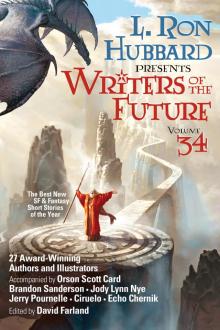 Writers of the Future Volume 34
Writers of the Future Volume 34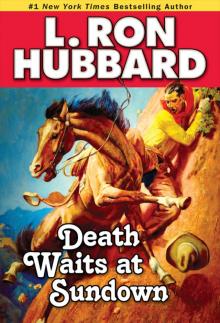 Death Waits at Sundown
Death Waits at Sundown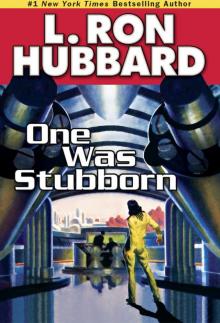 One Was Stubbron
One Was Stubbron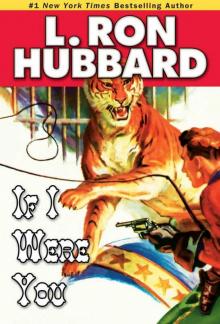 If I Were You (Stories from the Golden Age)
If I Were You (Stories from the Golden Age)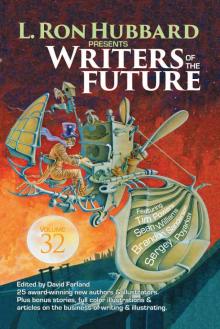 Writers of the Future 32 Science Fiction & Fantasy Anthology (L. Ron Hubbard Presents Writers of the Future)
Writers of the Future 32 Science Fiction & Fantasy Anthology (L. Ron Hubbard Presents Writers of the Future)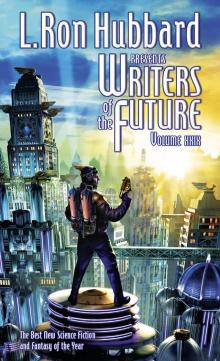 Writers of the Future, Volume 29
Writers of the Future, Volume 29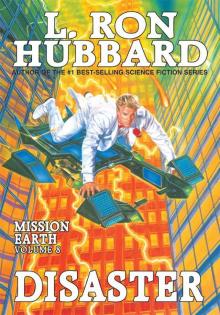 Mission Earth Volume 8: Disaster
Mission Earth Volume 8: Disaster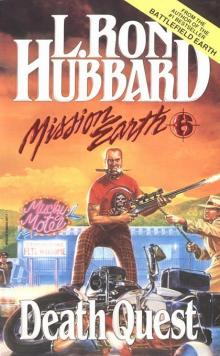 Mission Earth 6: Death Quest
Mission Earth 6: Death Quest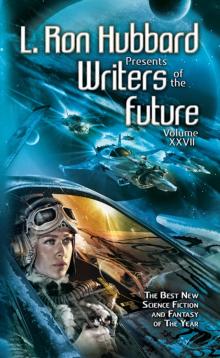 Writers of the Future, Volume 27
Writers of the Future, Volume 27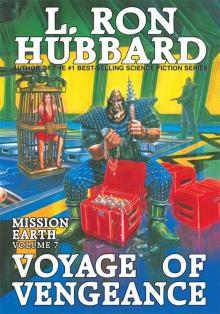 Mission Earth Volume 7: Voyage of Vengeance
Mission Earth Volume 7: Voyage of Vengeance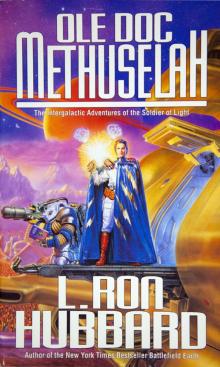 Ole Doc Methuselah
Ole Doc Methuselah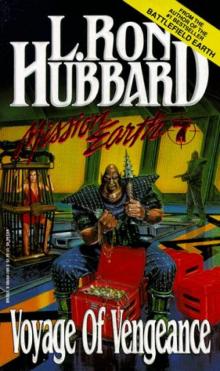 Mission Earth 07: Voyage of Vengeance
Mission Earth 07: Voyage of Vengeance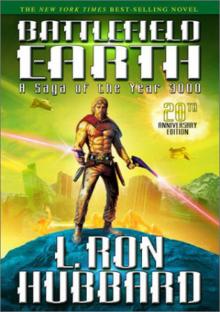 Battlefield Earth
Battlefield Earth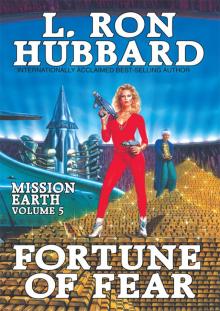 Fortune of Fear
Fortune of Fear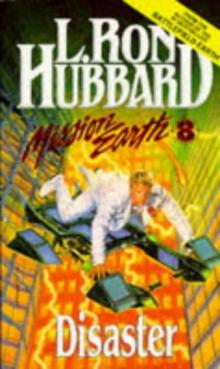 Mission Earth 8: Disaster
Mission Earth 8: Disaster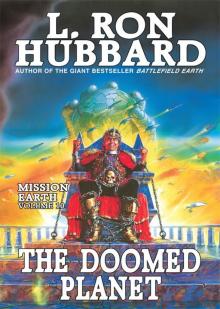 Mission Earth Volume 10: The Doomed Planet
Mission Earth Volume 10: The Doomed Planet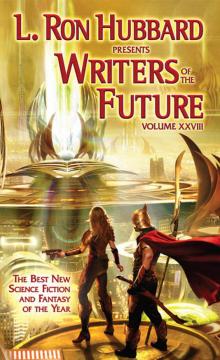 Writers of the Future, Volume 28
Writers of the Future, Volume 28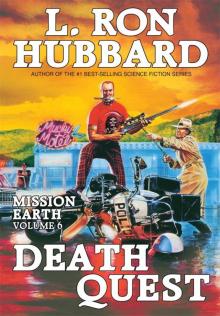 Mission Earth Volume 6: Death Quest
Mission Earth Volume 6: Death Quest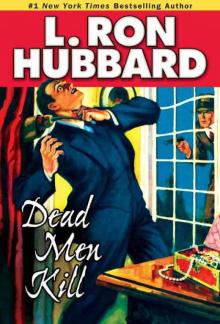 Dead Men Kill (Stories from the Golden Age)
Dead Men Kill (Stories from the Golden Age)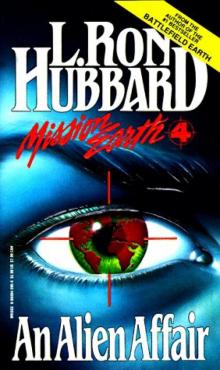 Mission Earth 4: An Alien Affair
Mission Earth 4: An Alien Affair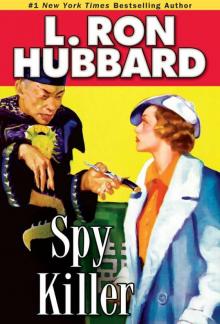 Spy Killer (Stories from the Golden Age)
Spy Killer (Stories from the Golden Age)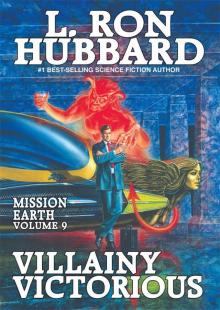 Mission Earth Volume 9: Villainy Victorious
Mission Earth Volume 9: Villainy Victorious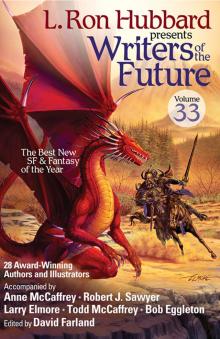 L. Ron Hubbard Presents Writers of the Future, Volume 33
L. Ron Hubbard Presents Writers of the Future, Volume 33